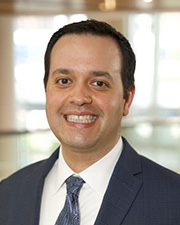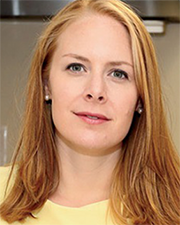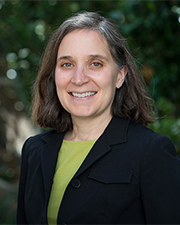Fall Seminar Series Features Experts in Substance Use and Treatment, Eating Behaviors and LGBTQ+ Health Disparities
The Cofrin Logan Center for Addiction Research and Treatment at the University of Kansas will launch its fall seminar series this week with a talk presented by a University of Kentucky scientist who studies cocaine use disorder.
 William Stoops, a professor of behavioral science, psychiatry and psychology at the University of Kentucky, will present at 11:30 a.m. Friday, Sept. 16 in the Dole Human Development Building, room 1031. The event will also be livestreamed via YouTube; details will be shared on the center’s website.
William Stoops, a professor of behavioral science, psychiatry and psychology at the University of Kentucky, will present at 11:30 a.m. Friday, Sept. 16 in the Dole Human Development Building, room 1031. The event will also be livestreamed via YouTube; details will be shared on the center’s website.
Stoops will describe research that has evaluated some non-abstinence outcomes for treating cocaine use disorder that may serve as novel targets and be used to identify and advance treatments.
Additional speakers in the series are:
 Ashley Gearhardt, 11:30 a.m. Friday, Oct. 21 in 1031 Dole. Gearhardt, an associate professor of psychology at the University of Michigan, studies how certain foods may be capable of triggering an addictive process and brain reward systems driving eating behavior.
Ashley Gearhardt, 11:30 a.m. Friday, Oct. 21 in 1031 Dole. Gearhardt, an associate professor of psychology at the University of Michigan, studies how certain foods may be capable of triggering an addictive process and brain reward systems driving eating behavior.
 Annesa Flentje, 11:30 a.m. Friday, Nov. 4 in 1031 Dole. Flentje is an associate professor at the University of California San Francisco School of Nursing and studies health and health disparities among sexual and gender minorities.
Annesa Flentje, 11:30 a.m. Friday, Nov. 4 in 1031 Dole. Flentje is an associate professor at the University of California San Francisco School of Nursing and studies health and health disparities among sexual and gender minorities.
“Through our seminar series, we highlight pressing issues in addictions research and treatment and educate the public about addictions science in an effort to increase knowledge and reduce stigma,” said Michael Amlung, associate director for training at the center and associate professor in the KU Department of Applied Behavioral Science. “The series is a key component of the educational and outreach missions of the Cofrin Logan Center.”
Based at the KU Life Span Institute, the Cofrin Logan Center brings together researchers, practitioners, KU students, and community partners to address challenges in addiction. Researchers affiliated with the center explore a wide range of behavioral health challenges, while clinical staff members of the center deliver direct addiction treatment and therapy services to individuals in the community, as well as arts-based therapy programs.